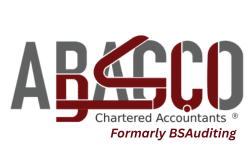The objective of an internal audit is to provide independent assurance that an organization’s risk management, governance, and internal control processes are operating effectively. Internal auditors employ a methodological technique to examine and offer assurance services by carrying out an analysis operation, reviewing compliances, recommending control procedures, and ensuring safeguarding methods.
The significance of good chartered accountants in UAE cannot be neglected. Following this, you must hire an auditing firm in UAE in order to keep your organization up to the standard.
The duties of an internal auditor
- Evaluate the success of risk assessment processes currently in operation.
- Objectively review the business operations of the company.
- The guard from bribery and misuse of the funds of the company.
- Ensure that the company complies with the applicable laws and regulations.
- Make recommendations on how to strengthen corporate management and governance mechanisms.
The relationship between an internal auditor and other departments of the organization
No organization can function without integration and synchronization. Consequently, the internal auditor works in collaboration mainly with the following departments of an organization:
- Board of directors
They are accountable for making big decisions on behalf of the organization, such as developing organizational policy and practices, initiating mergers, and taking action to increase business activities.
- The internal auditing department
It consists of financial controllers headed by the Chief Audit Executive (CAE), serving as a conduit between the Board of directors and managers. Essentially, they determine whether the Board’s guidelines and regulations conform to the legislation and whether they improve the business’s overall performance and competitiveness. If the directives of the Board are inefficient, or are not followed by the management team, the internal auditor has a responsibility to report directly to the Board with his conclusions and suggestions.
- Various levels of management
They are responsible for the execution of the directives and regulations determined by the Board of Directors, as well as for making day-to-day decisions about how the company runs.
The scope of the internal auditor’s job
The primary purpose of every enterprise’s internal auditing division is to collect knowledge that can be processed and translated into useful lessons into how the business can be managed more effectively. There are four standard strategies used in the practice of internal auditing to do this:
- Observe the target market climate.
- Inspect the relevant risk management, financial statements, and growth methods currently in operation.
- Inquire or answer questions from executive staff about the efficacy of existing internal controls
- Confirm whether the goals and objectives of the company are being followed.
Collectively, the four methods that make up the internal audit process encourage auditors to compile facts and facts, review the data gathered and report back to the Board of directors with recommendations for change, if necessary.
In bridging the distance between the Board of directors and the executive management committee, internal auditors are called upon to use their professional discretion to assess the criteria by which company practices are calculated. This can include the following:
- Conducting relevant research
- Analysis of corporate policies, systems, and procedures
- Defining the priorities of audit
- Deciding on the type and scope of the audit protocol
- Statement of final views and assumptions
- Making and distributing conclusions to the Board of Directors
One of the most critical facets of the internal auditor’s role is the opportunity to carry out an independent review of the organization’s operations. When corporate culture prohibits the internal audit department from conducting its duties as planned, the company would not benefit from the gains that are associated with an honest internal audit, such as improved performance and competitiveness, minimized waste, financial savings, and legal enforcement.
Corporations may facilitate independent auditing by hiring auditors who do not work in any other role within the company. In Section 1100 of the Guidance and Standards of the IIA, the Institute of Internal Auditors advises that internal auditors report to a single committee or board member with supervisory power over the internal auditing division in order to preserve independence and objectivity.
Internal Audit Department of BSA Auditing & Consultancy has all the capabilities to evaluate emerging technologies, analyzing opportunities, examining global issues, assess risks, controls, ethics, quality, economy, and efficiency and to assure you that in your company, controls in place are adequate to mitigate the risks or improvements are required. Our team communicates information and opinions with clarity and accuracy and puts emphasis on tangent points between the requirements of the standard and control processes in a business organization. Our qualified and diversified internal auditors make a valuable resource to executive management and boards of directors in accomplishing overall goals and objectives, as well as in strengthening internal controls and organizational governance.
For more details or to schedule a meeting please call us at +97145707357 or send us an email at info@bsauditing.com.


